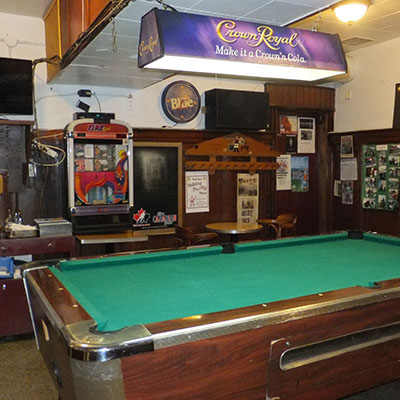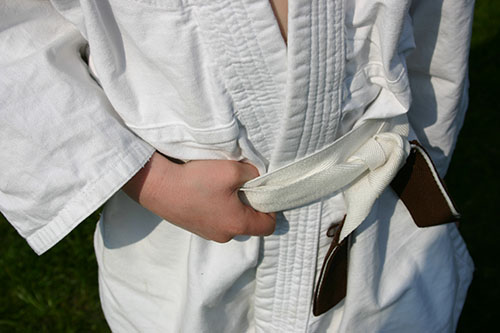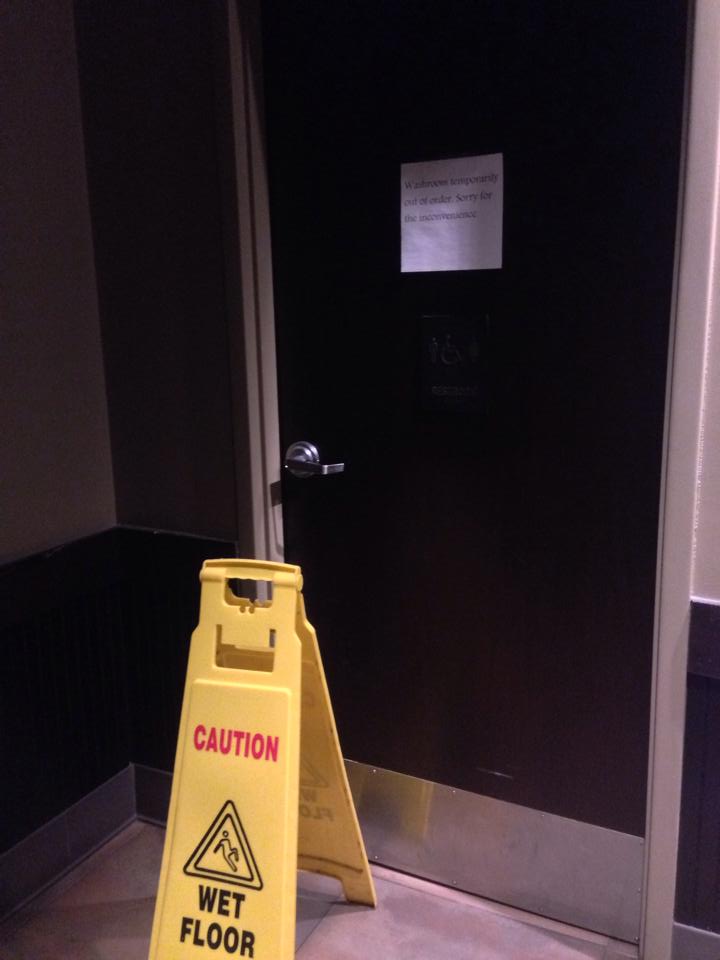Scars from the Gridiron
/By Justin Chartier
Sitting at my desk, I feel a pinch in my back. My neck is stiff too, but better than most days. My wrist hurts at times, and right now it's flaring up. If I were to stand, my knee would straighten with a creaking ache and the pinch would unfold to a nagging throb. I think of these as normal, something we all go through as our bodies progress towards adulthood. At the ripe age of 23, I at least have an idea what's causing the pain. I'm a retired football player, and I have the battered body to show for it. The mornings when I wake up with headaches that stem from a fractured vertebrate and countless hits to the head, I wonder if playing for all those years was worth it.
I was almost 10 years old, and in my mind, I was practically an adult. My friends were martial artists, hockey players, and soccer players, and I remember the conversation I had with my parents when I announced to my father, who sat quietly at the dinner table with a cup of tea, that I would be joining a hockey team. I explained that it was an important step toward an NHL career. My mother called out from the kitchen as she prepared dinner, “I don't think so.”
My father considered my outlandish request, and countered with a proposition: Play a year of football first, to toughen up, and next year he would put me in hockey. I accepted the terms. My heart was set on hockey, and at the time, football was only a means to an end. I would later learn that hockey was just a much more expensive sport to play.
I joined the Bel-Air Copeland Lions within a couple of weeks and was easily one of the smallest players on the team. If my dad's plan was to toughen me up, it worked. I was bounced around like a speed bag for much of the season.
For the first year we didn't have practice jerseys, so my dad gave me one of his biggest football shirts – a Pittsburgh Steelers t-shirt that was likely attained from a case of beer. The night before our first game, they handed out the game jerseys – thick yellow cotton with two heavy black stripes on the sleeves and big block numbers centred on the chest. Number 14 was mine for almost five minutes, but as I was about to throw it onto my shoulder pads, my coach approached me, holding another jersey. “Sorry,” he said, “but that jersey is Wassim's. You'll have to wear this one, 42.” It would take me a few years, but I eventually realized this wouldn't change a thing. My first all-star coach put it best. “It's just a number. You can complain when your jersey is worth selling at Sport Chek.”
We finished the season in November, and by the time September came back around, I had completely forgotten about hockey. I couldn't wait to get back on the gridiron. My second year was twice as fun, and I was twice as good. I received my first Most Valuable Player award. By year three, I was overage, meaning I would have to move up a level and play with 11, 12, and underweight 13 year olds. I did have the option of losing weight to stay at the younger level. It was called playing overage-underweight. I weighed a staggering 94 pounds and needed to get under 90. At 11 years old, I had just begun a growth spurt, so losing that five pounds would prove impossible. At the final weigh-in I stood nearly naked on a large metallic scale at 91 pounds.
I survived for the next two seasons as I grew to a respectable size. In my fifth season I played overage-underweight, resulting in a second MVP award. Football was officially my new love, and I began dreaming of playing pro. I would soon learn, however, that such a love and dream would have consequences.
At 14 years old, I played my first year of Peewee. I was thrown into a complicated defensive scheme, and did my best to contribute despite being, again, undersized. We were two games into the season (0-2) and after one week of particularly rough practice, I began to have shooting pains in my back.
I felt helpless, trying everything from heating pads to painkillers, even Pepto Bismol, to ease such an unusually sharp squeezing pain in my lower back. I allowed my teammates and father to convince me it was a muscle pull. I wouldn't practise, and I began to miss games. Some days it felt better, and other days I felt like was going to collapse at any moment. After missing two weeks and heading into the third, I told my father I still wasn't well. He was frustrated, and I know he and my coach thought I was exaggerating. He asked me if I was afraid to play with the older kids and I was infuriated that he would consider that a possibility. I suited up both nights for practice, and sobbed myself to sleep from the pain. I played the next game, and played well.
My brother and I were still in our football pants when we arrived at the campground near Carleton Place that we visited during the summer. The sun had just tucked behind the Mississippi River, and we knew all the kids would be starting their nightly game of manhunt. The pain came back with a vengeance just as I slipped into my go-to hiding spot. I ignored it at first, but it wouldn't let up. A trick I found to help the pain was to empty my bladder. So I snuck off.
I looked down at the steady stream of urine as it poured into the porcelain bowl. The collecting puddle was a deep orange. I nervously walked back to my campsite, and hopped into the camper. My dad sat at the table quietly with a cup of tea, my mother working on a crossword across from him. “Dad,” I said, “I need to tell you something.”
I drank three cups of water before the urge to pee hit me again. My father said he believed me, but that he needed to see it before we made the long drive to the hospital. When I slipped out of the bathroom, I could see in his face that he was just as scared as I was. “It's worse this time.”
The Perth Hospital didn't know what to do with me. They were sure it was either a kidney or bladder problem, but by then I was releasing crimson red urine. It was the doctor's call, and he blatantly admitted that they weren't equipped to deal with the situation. They sent me to Ottawa's Children’s Hospital of Eastern Ontario (CHEO), but not before giving me a parting gift of Vicodin for my ambulance ride.
I was kept at the hospital for three days and two nights as the bruising on my kidney subsided. The food was great, and I was given my own television set. In the early evening, I was rolled over to the playroom. My wheelchair was locked into place directly in front of the PlayStation 2. My family came to visit, and I vividly remember how my aunt's eyes watered as she asked how I felt. “Fine,” I would answer, but I remained out of commission for nearly six weeks after being sent home, and I couldn't do as much as walk up stairs.
The doctors called it a one-in-a-million shot, which coincidently are the same odds of making it as a pro football player. I took it in stride, but it was the beginning of the end. I broke off a piece of my left kneecap the next season, though I'd only find out the following year. Not long after, I broke my left wrist. The play was relatively innocent – I was knocked over and instinctively went to brace the fall with my left hand. I fell awkwardly and felt the crack and pop. I shamelessly wept, not from the pain, but when my father commented, rather lightly, “well, I guess that's it for this season.”
I played anyway, cast and all.
I had a lot to prove the following year, and I decided that I was going to play both city and high school football to compensate. The result of that was a collision involving two helmets and my right hand. After spending almost two weeks in a cast, I regrettably cut off the fibre-glass casing on a bus, and headed to a much anticipated playoff game. We lost, and lost big. My hand was re-broken just a few minutes into the game.
The love was still strong, but I realized it wouldn't numb the pain forever. I sustained a semi-serious neck injury playing junior ball. This injury was the most innocent and devastating of all. It happened in a friendly collision during practice, and I hung up the pads soon after. Some called it quitting, others believed I just didn't have it in me, but a few knew the extensiveness of my injuries.
Now I have six MVP trophies in a box somewhere in my house, along with one other: The John Smith Award, given to me before graduating from the 4th level of Bel-Air football. The description of the award goes something like this:
“Former player and coach Tim Armstrong donated this award to be presented to a graduating player who's contributed greatly to the Bel-Air club throughout their career.”
There is an old saying among the toughest players in pads: Pain is temporary.
Every day we learn more about our bodies and how they function, but more importantly, how they recover. My pain is not temporary; it will be with me for the rest of my life. Like most kids who play a sport they love, I never went pro. But I did give the game all I had.
I could relive my glory days, hang my jerseys on the wall and throw those trophies on a shelf, but I don't need to. When it comes to the 13 seasons of football I sacrificed body and soul for, I have all the reminders I need when I wake up every morning. And when it comes time to put my child into a contact sport, I will take a long hard look in the mirror. By then, I hope to know if it was worth it.




















